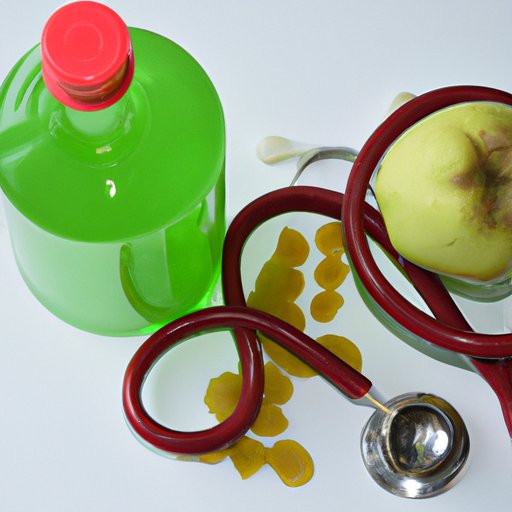
I. Introduction
Many people experience bloating, discomfort, and a distended stomach after meals. This can be caused by a variety of factors, such as eating too quickly, consuming certain foods, or experiencing stress. Regardless of the cause, bloating can be incredibly uncomfortable and can affect one’s quality of life. In this article, we’ll explore various ways to alleviate bloating and get rid of a distended stomach.
II. Diet Changes
One of the most effective ways to reduce bloating is by making changes to your diet. Here are some tips:
- Include foods that help reduce bloating, such as ginger, peppermint, and foods that are rich in probiotics (e.g. yogurt, kefir).
- Avoid foods that are high in fat, as they take longer to digest and can cause bloating.
- Eliminate carbonated drinks from your diet, as they can lead to gas accumulation in the stomach.
- Eat slowly and chew your food properly to aid in digestion and prevent the swallowing of excess air.
III. Exercise
Physical activity is essential in reducing bloating. Here are some exercises that can help:
- Yoga is highly effective in stimulating the digestive system and reducing bloating. Certain yoga poses, such as the seated spinal twist or the cat-cow stretch, can help relieve trapped gas.
- Walking is one of the simplest exercises that can enhance digestion, as it promotes the flow of gas in the body.
- Cycling, swimming, and other low-impact exercises can also help alleviate bloating and promote bowel regularity.
IV. Stress Management
Stress can contribute to a distended stomach, as it leads to increased levels of cortisol and can alter digestion. Here are some stress management techniques:
- Deep breathing exercises can promote relaxation and decrease cortisol levels, which can reduce bloating.
- Yoga, tai chi, and meditation can help individuals manage stress and prevent bloating.
- Reading, spending time outdoors, and engaging in a hobby are other ways to alleviate stress and decrease the likelihood of experiencing bloating.
V. Digestive Enzyme Supplements
Digestive enzyme supplements can aid in the digestion of food and reduce the chances of gas and bloating. Here are some things to keep in mind:
- There are various types of digestive enzyme supplements available, including amylase, lipase, and protease. It is important to consult with a doctor or a qualified health professional before taking these supplements.
- Symptoms of bloating and gas can be caused by a variety of underlying conditions, such as irritable bowel syndrome or lactose intolerance. It is important to have these conditions properly diagnosed before using any supplements.
- Excessive use of digestive enzyme supplements can cause side effects such as diarrhea and nausea. Follow the recommended dosage for the supplement you are using.
VI. Water Consumption
Drinking enough water each day is essential to maintaining good digestion. Here are some tips to help increase your water intake:
- Aim to drink at least eight glasses of water per day.
- Drink water before, during, and after meals to aid in digestion.
- If you struggle to drink enough water, try adding sliced fruit or herbs to your water for added flavor.
VII. Conclusion
There are several ways to alleviate bloating and get rid of a distended stomach. Incorporating healthy foods into your diet, staying hydrated, getting enough exercise, managing stress, and using digestive enzyme supplements can all help. By adopting a healthy lifestyle and avoiding habits that can cause bloating, you can prevent future digestive problems.





